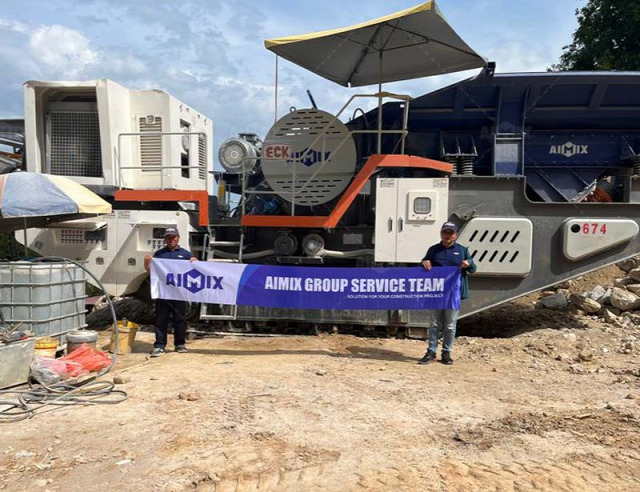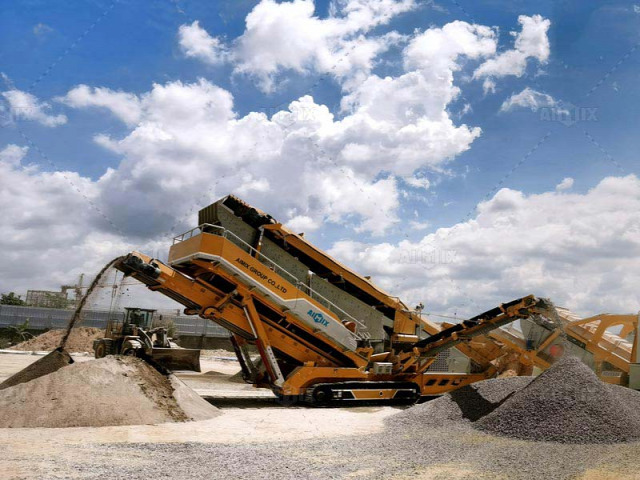Effective maintenance practices are critical to ensuring the reliability and longevity of rock crushing and screening equipment. These devices operate in harsh conditions and require meticulous attention to detail to maintain optimal performance and reduce downtime. By implementing a structured maintenance program, operators can increase the durability and efficiency of their equipment.
The Importance of Regular Maintenance
Scheduled maintenance is the cornerstone of plant reliability. Regular maintenance activities prevent unexpected breakdowns and extend the life of machinery. By regularly inspecting and servicing components, operators can identify and correct potential problems before they escalate, ensuring continuous operations and minimizing costly interruptions.
Preventive maintenance
Preventive maintenance involves regularly inspecting and servicing equipment to prevent breakdowns. This proactive approach includes tasks such as lubricating moving parts, replacing worn parts, and checking electrical systems. Regular preventive maintenance helps keep equipment in optimal condition, thereby increasing the reliability aggregate crushing plant .
Predictive Maintenance
Predictive maintenance uses advanced technology to monitor equipment condition in real time. Technologies such as vibration analysis, thermal imaging and oil analysis detect early signs of wear. By predicting when a component is likely to fail, operators can plan maintenance activities more effectively, reducing unplanned downtime and improving plant reliability.

Develop a maintenance plan
A well-structured maintenance program is essential for the smooth operation of your rock crushing and screening equipment. The program should include daily, weekly, monthly and annual maintenance tasks. Adhering to a comprehensive maintenance program ensures that all critical components are regularly inspected and serviced.
Daily inspection
Daily inspections include checking the overall condition of the equipment, including fluid levels, belts, and safety devices. Operators should watch for any signs of wear or damage and address small issues immediately to prevent them from becoming major problems.
Weekly and monthly maintenance
Weekly and monthly maintenance tasks are more detailed and include a thorough inspection of key components such as conveyors, screens, and crushers. These inspections should include cleaning, tightening, and lubricating components to ensure smooth operation. Any worn or damaged components should be replaced promptly.
Annual Grand Revision
The annual overhaul involves a comprehensive inspection of the entire plant. This includes disassembly of major components for detailed inspection, cleaning and refurbishment. The annual overhaul is essential to discover and resolve hidden problems that could affect plant reliability in the long term.
Training and skills development
Well-trained personnel are essential to effective maintenance practices. Operators and maintenance personnel should be familiar with the equipment and proficient in performing maintenance tasks. Ongoing training and skills development programs ensure that the team is up-to-date on the latest maintenance techniques and processes.
Operator Training
Operators should be fully trained on equipment operation and basic maintenance. They should be able to perform daily inspections, identify potential problems and make minor repairs. This reduces reliance on specialized maintenance personnel and ensures minor problems are resolved quickly.
Professional maintenance training
Professional maintenance training programs focus on advanced maintenance techniques and processes. Maintenance personnel should be trained in predictive maintenance methods, diagnostic tools, and repair procedures. This ensures that the team can effectively handle complex maintenance tasks and improve plant reliability. Learn more useful tips here: https://aimixgroup.com/stone-crusher-plants/rock/ .

Leveraging technology for maintenance
Technology plays a vital role in optimizing maintenance practices. The integration of advanced monitoring systems and maintenance management software can significantly improve the efficiency and effectiveness of maintenance activities.
Remote monitoring system
Remote monitoring systems use sensors to continuously track equipment conditions. These systems provide real-time data on various parameters, such as temperature, vibration, and pressure. By analyzing this data, operators can detect anomalies early and take corrective measures before failure occurs.
Maintenance management software
Maintenance management software helps in planning, scheduling, and tracking maintenance activities. The software provides a centralized platform for recording maintenance tasks, generating reports, and analyzing maintenance data. By using maintenance management software, operators can streamline the maintenance process and ensure that all maintenance activities are completed in a timely manner.
in conclusion
Optimizing maintenance practices is essential to improving the reliability and lifespan of stone crushing and screening plant. By implementing a structured maintenance program, investing in training and skills development, and leveraging advanced technologies, operators can ensure continuous operations, reduce downtime, and maximize equipment efficiency. Adopting these practices will not only increase plant reliability, but also improve the overall productivity and profitability of your operation.

